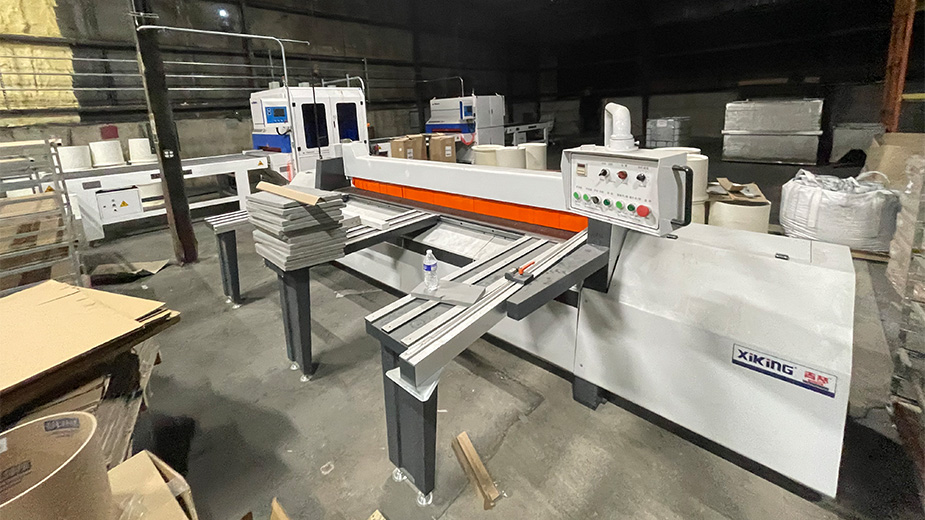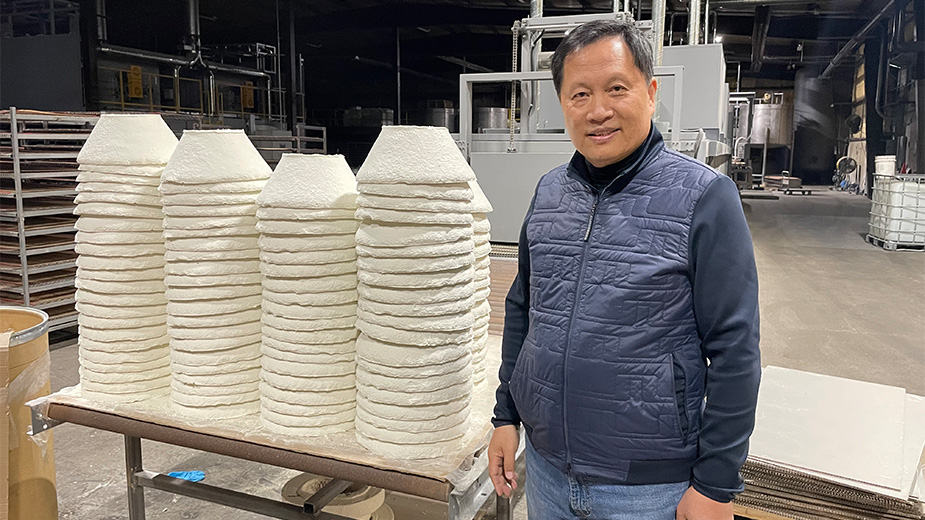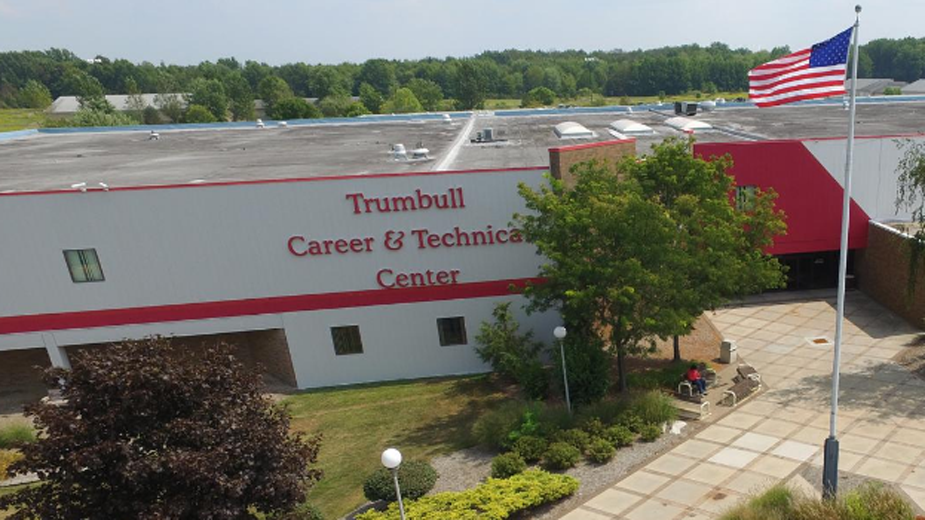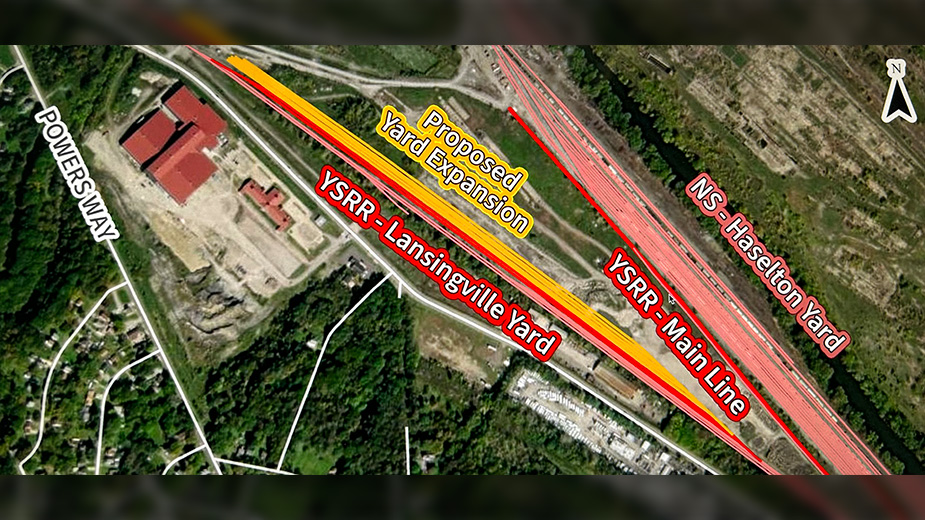Business Owner Filing $500M Lawsuit Against Norfolk Southern
EAST PALESTINE, Ohio – Nine months after the train derailment in the village, a lot has been done to clean up the site, and East Taggart Street has reopened.
But not everything is back up and running on that end of town – including CeramFab, which had the derailed Norfolk Southern train go right past its back door on Feb. 3. Then a controlled vent and burn released chemicals into the air, water and soil just to the east of the plant.
With the exception of a short time right after the derailment, CeramFab has been unable to reopen. According to owner Edwin Wang, the Environmental Protection Agency said air tests indicated it was safe to return, but seven employees suffered illnesses, and the plant was forced to close again.
The uncertainty and lack of progress has led to Wang’s decision to file a $500 million, seven count civil damages lawsuit against Norfolk Southern. Attorneys were to file the lawsuit Tuesday in the U.S. District Court for the Northern District of Ohio on behalf of Wang’s East Palestine businesses. In addition to CeramFab, Wang also owns WYG Refractories and CeramSource Inc.
“It’s incredible nobody came to us since that time to give us any guidance, to share any information with us, to help us to recover,” Wang said. “We are not sure if we can continue. I have no idea. Our future is uncertain.”
Wang rarely enters the CeramFab plant where, until this year, he planned to expand from one line to six and add additional shifts. Since the derailment, CeramFab has been at the site of the cleanup efforts by Norfolk Southern. He says the railroad has worked on his property since the beginning and used it as a staging site for hauling away toxic, contaminated dirt and railway cars.
On Monday, a contractor with the railroad was still sitting at the top of the driveway leading to his business, stopping vehicles from entering the site.
Wang sees the problem as having many layers. His skilled workforce has found new jobs, and others he might hire fear working in the plant so close to the derailment site. The business relationships he has built through the years have been broken as he had to cancel a major order when the derailment happened due to a lack of ability to manufacture. Confidence in the company he has been building over more than two decades has eroded.
“We canceled that order. That day I felt terrible,” Wang said, noting that steel company Nucor Corp. had to go to his competitor to get what it needed.
“With that cancellation of that order, our future was canceled,” Wang said. “Our future in the steel mill industry was canceled. We have no future.”
On Monday. he stood next to equipment that has been unable to operate for months, including some new finishing equipment that was just installed before the derailment. He has raw materials ready to be used in manufacturing items for the steel industry, but no orders. He has half-finished high heat ceramic insulation products still sitting in the plant that customers fear is contaminated. These items are companion products to the refractory bricks made at WYG Refractories, which also has been unable to operate.
Wang said he put both manufacturing plants in East Palestine so products could be custom made here in America, with convenient shipping for his customers and good jobs for a small town. CeramFab, WYG Refractories and CeramSource are all included in the lawsuit. CeramSource, an import, wholesale business of insulated materials, had to be moved out of the state to Beaver Falls, Pa., to survive.

When he came to East Palestine, Wang says he promised to create 45 jobs and estimates the businesses could have supported 60 jobs creating high-demand items. The one line with only one shift at CeramFab created $1.5 million in revenue, and he believes with the planned expansion, the business could have been creating $18 million in products by the end of 2025, one of four companies in the U.S. making those products.
Wang said he still has not received a timetable from Norfolk Southern for when it intends to complete its work around his building, and he now believes Norfolk officials may not even know.
“In five days after the derailment I see their trains running on the railroad, but after nine months we’re still shut down,” Wang said, adding he believes the railroad needs to understand that other businesses and people living near the site are still suffering. Some are still reluctant to return to the manufacturing plants along the tracks and the houses nearby.
“It’s their responsibility to make their operation safe all the time,” Wang said of the railroad. “By running production nearby the railroad, that is not our fault. … What is the recourse that we have? Where is the government? What is their role to helping small businesses like us?”
He has spoken to the port authority about possible help for businesses to rebound after the derailment, but they were offering him loans, which he said were not enough to meet their needs. And with a lack of business, he was uncertain he would be able to repay. He has invested a lot of his own money – his life savings – into a business that, until the derailment, had been able to grow and survive the pandemic.
“We never used bank loans. We were never in debt,” Wang said. “Now we have to use bank loans. We are broke.”
Jon C. Conlin, principal at Cory Watson, P.C., which is filing the lawsuit, issued a statement as well, claiming Norfolk Southern had 67 total accidents in Ohio between 2019 and 2022, the most of any company, and has reduced its workforce by 39% between 2011 and 2021.
“When you investigate the background of Norfolk Southern, the pressure executives applied to make faster, longer trains, run with smaller crews, and to repeatedly put juiced corporate profits over even basic public safety concerns, a disaster of this magnitude was only a matter of time,” Conlin said. “The full scope of this tragedy – on humans, animals, the community and the environment – may not be fully known for years, but we know right now that Edwin Wang’s businesses will never fully recover. That is why we are seeking full, just and complete compensation for all current and future damages suffered by his businesses.”
Conlin went on to commend Wang for standing up for his business, his employees and others in the community still trying to recover.
“We pay taxes in order to live and work in a safe and clean environment,” Wang said. “We do not deserve contamination. … We cannot live with dioxins. We cannot live with carcinogens. We do not want our employees at risk.”
Pictured at top: Edwin Wang, owner of CeramFab Inc., WYG Refractories and CeramSource Inc.
Copyright 2024 The Business Journal, Youngstown, Ohio.



